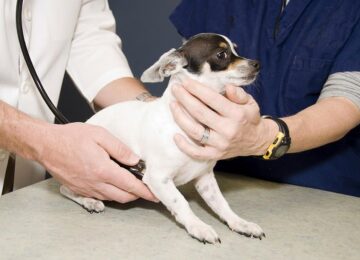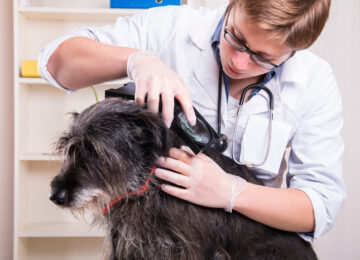Did you know that your dog’s gut contains trillions of bacteria, both good and bad? According to the experts over at Nextrition, having the right balance of these gut microbes is crucial for proper digestion, nutrient absorption, immune function, and overall health. Feeding the wrong diet can disrupt this delicate gut ecosystem, leading to issues like diarrhea, vomiting, weight issues, allergies and more. To that end, here is how to choose the best dog food for gut health.
The Importance of a Healthy Gut
Nearly 70% of a dog’s immune system is located in their gut, along with millions of neurotransmitters that communicate with the brain. An imbalanced gut microbiome with too many harmful bacteria can trigger:
- Chronic diarrhea or constipation.
- Food intolerances and skin issues.
- Poor nutrient absorption and weight loss.
- Lowered immunity and frequent infections.
- Inflammatory conditions like arthritis.
- Anxiety, aggression and other behavioral problems.
Needless to say, keeping your pup’s gut healthy through proper nutrition should be a top priority.
Prebiotics and Probiotics
Two key dietary components that promote a strong, balanced gut are prebiotics and probiotics:
- Prebiotics are types of fiber that “feed” and nourish the existing good bacteria already living in the gut, helping them multiply.
- Probiotics are live beneficial strains of bacteria, like Lactobacillus and Bifidobacterium, which populate the gut with more of these helpful microbes.
Pre and probiotics work together to increase microbiome diversity and crowd out harmful bacteria. Great prebiotic sources include chicory root, beet pulp, guar gum and lentils.
High-Quality Protein
Feeding premium protein from lean muscle meats like chicken, turkey, fish, and eggs provides the essential amino acids needed to maintain a healthy gut lining. It also supports balanced bacteria colonies and digestive enzymes. Avoid rendered meat meals, plant proteins and too many fillers like corn, wheat, and soy, which can trigger inflammation and leaky gut issues.
Fiber for Regularity
An optimal dog food for gut health contains a balance of both soluble and insoluble fiber sources to promote proper defecation. Fiber helps absorb excess water for firm stools and provides fuel for beneficial bacteria to thrive. Good options are pumpkin, sweet potato, brown rice, oats, flaxseed, and leafy greens in moderation.
Digestive Enzymes
Helpful enzymes like amylase, protease and lipase help break down carbs, proteins and fats into easily absorbable nutrients needed to repair and maintain a healthy gut lining. Many high-quality dog foods include supplemental enzymes, or you can add a digestive enzyme powder to support smoother digestion.
Avoid Harsh Additives
Avoid dog foods containing artificial colors, flavors, sweeteners, and preservatives linked to gut inflammation and dysbiosis (microbiome disruption). These can damage delicate intestinal cells over time. Ingredients like BHA, BHT, propylene glycol and rendered animal fats should be avoided in favor of natural preservatives like mixed tocopherols and rosemary extract.
Slow Transitions
Whenever switching to a new dog food, slowly transition over 5-7 days to allow the existing gut bacteria time to adjust to the dietary changes. Abrupt switches can cause significant digestive upset and discomfort.
Be Patient and Persistent
If your pup has severe or chronic gut issues, it may take several weeks or months on an appropriate elimination diet before you see major improvements as the microbiome rebalances itself. Work closely with your veterinarian and don’t get discouraged; sticking with the right gut-nourishing nutrition is key to getting your dog’s digestive system back on track for the long haul.
Conclusion
Understanding which ingredients promote microbiome diversity versus those that disrupt gut balance means you can make informed choices on the best dog food for gut health that keeps your furry friend feeling their absolute best.












